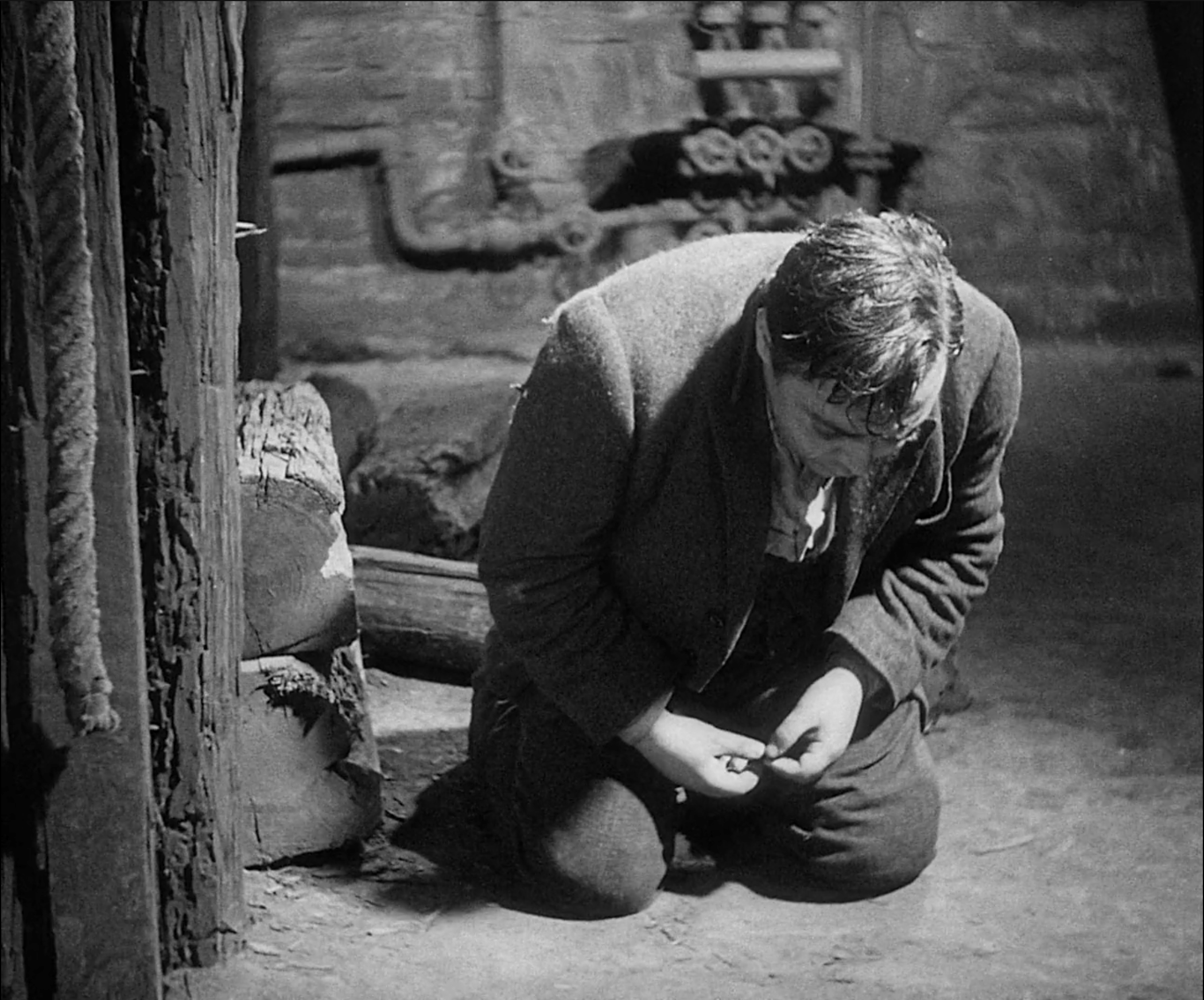
The movie, Bone was released in 1972 and everything about it reflects that time frame. In 1972 Richard Nixon was president, Gloria Steinem’s published the first issue of her new magazine Ms. and America was still deeply mired in The Vietnam War. Some of the films made in 1972 were: The Discreet Charm of the Bourgeoisie, The Last House on The Left, Superfly, the fourth Planet of Apes, and The Harder They Come. All of these films have a relationship to Bone.

Bone was written, directed and produced by Larry Cohen. It was his first movie. The film is an absurd satire, but it does not stray far afield from reality. It has absurd elements and it is often humorous but the world the characters live in is not that far removed from the one we live in, or would have lived in, in 1972.
Bone is about dislocation, a feeling that you don’t know where you belong. In Identity Studies there is a term called “subject position.” Google provides a fabulously clear definition of the term, “Subject-positions are constructed from discourses by subjects of a discourse, who subjectify themselves to a discourse to a position from which they can make the most sense of the discourse (Hall, 1997)” Did you get that? There is a more helpful definition provided by Davies and Harre, “the discursive process whereby selves are located in conversations as observably and subjectively coherent participants in jointly produced story lines. There can be interactive positioning in which what one person says positions another. And there can be reflexive positioning in which one positions oneself.”
All this stuff is from the 90s but Bone uses subject position adeptly throughout the film. Each character’s dialogue, each of their identities, has to do with how they are positioned by the others. Identity is established in people or in anything through comparison. There are no statements that can be made about a person or thing that do not entail referring to some other person or thing. If you are nice, someone must be not nice. If you are tall, someone must be not tall, human — inhuman, black — not black. This means all identities exist, not within us, but between us. If I am going to call myself a teacher I need someone else to call themselves a student. This is how we get invested in each other’s business eg. “You can’t be gay, because you are messing up my definition of male which is integral to my identity.”
The film Bone is named after its lead character. Bone is a criminal roaming through Beverly Hills looking for trouble. Most of the film concerns the invasion of a stereotypical upper class, American couple’s home. The politics of subject position are made concrete as we watch the three people physically position and reposition themselves inside as well as outside the house. It is reminiscent of Kurosawa’s Rashomon where every camera angle and every movement is like a game of chess. One way to think of subject position might be as a chess game where each piece has the ability to make the other pieces change their identity. If I move my knight into the right position I can cause your rook to become a queen. It would be an impossibly confusing and absurd game but would perhaps illustrate something about the truth of our social reality.

The physical and social position of each character changes as they jockey for dominance, or figure out who wants what from whom, or who is protecting whom. In what is a combination of absurdity, horror and humor, Bone tries to rape Bernadette, the wife in the couple, but fails to get aroused and he has an impromptu therapy session with Bernadette afterwards. In a bizarre soliloquy he tries to explain himself,
“Well when I was 16 you could have called me “boy.” You know the whole idea of being with a white chick was like a fantasy, you know “stay away from her jack” you know, verboten. Fuck that shit “lynch him”. And the white girls, they were terrified jack, stone terrified. Used to I’d slip in to a house where a white chick was you know, and just stand there, just reveal myself jack, you know fuckin’ stand there. Scream “There’s a nigger in my house…Now you go into a movie house and there it is right there on the screen. How about that. Mixed couples all over the place. They went and took all the mystery out of it. Yeah, now they’re treating us like people You can see what kind of position that puts a rapist like me in. Damn it, I had it all worked out. I had the nigger mystique. I talked nigger walk, I talked nigger talk, I had it made Then they changed it.”

While Bernadette is sharing with her rapist, her husband, Bill, is also getting raped. He has crossed paths with a very strange woman reminiscent of Maude from Harold and Maude (which came out two years prior to Bone). The unnamed woman takes Bill back to her place and they discuss absurd theories about culture and politics. She then recounts the time when she was molested as a child. As she relives the trauma she becomes enraged and attacks Bill who tries to fight her off but eventually succumbs just as his wife is doing back at home.
Attacking the bourgeois couple is attacking bourgeois society. In Rashomon Tojomoru the thief attacks the well-off couple and in so doing reveals the hypocrisy and unspoken anger that seethed beneath the pleasant and untroubled facade. It takes an uncivilized outsider to crack open the mask civilized people have learned to maintain.
This sense that society keeps us all in check, the desire to break free and the fear of what that will mean, fuel the unrest of the 70s. It is abundantly apartment in the films from this time that society is excited about liberation: sexual liberation, women’s liberation, black liberation, gay liberation and more. There is a frenzy of optimistic activism as well as a hedonistic rush to indulge in what has been taboo for too long, but without the rules as a guide there comes a feeling of being unmoored, of drifting in an unstructured void of infinite possibilities.
All through the 70’s characters emerge that challenge the status quo but then find the resulting instability hard to handle. Travis from Taxi Driver, Howard Beale from Network, Alvie From Annie Hall, Thomas From The Man Who Fell to Earth, Joe from Midnight Cowboy and Benjamin from The Graduate, all have difficulty finding their place in the world. If identity is a position relative to others they are unable to form relationships that will help locate who they are.

In addition these are all white men which is what used to be the default, norm. This standard by which all others were compared was thrown into question, leaving everyone to redefine their positions. If the standard by which everything is measured changes then everything changes. Bone’s problems stem from his position as black. He explains to Bernadette while ripping off her cloths “I’m a big black buck doing what’s expected of him.”
The narrative of the film proceeds chronologically but there are cut aways to alternate spaces that are outside the timeline. We see Bill acting in a series of television commercial’s for his used car lot. The commercials break in at unpredictable junctures and interrupt the film. Bill is trying to fulfill his white, suburban, middle class, American dream, and his commercials depict him as successful part of it. However through the whole film there are moments of slippage where dialogue, music or images slide out of place and end up bumping into each other. After his wife is raped by Bone we see one of Bills commercials. He is standing in his lot amongst all the shiny Rolls Royces and he delivers this pitch,
“Yes friends that’s the way I found her, legs spread apart, dead! The victim of multiple rape and homicide. Truly a tragic situation ladies and gentlemen. So take your condolences and your sympathy to where the friendly freeways meet, where you can pick the car of your choice at an unbelievable low price during this limited tragedy sale.”
It’s as if the discrete scenes are wandering out of position, similar to the characters that are in them.

Lastly there is something else that distinguishes this film and marks it as an early 70s production. Its the films willingness to dive head first into the confusing morass of race, class and gender. Its not afraid to make a dangerous, volatile mess. The situations and dialogue presented in Bone are highly charged and full of meanings and connotations that are hard to control, but the film doesn’t hesitate to enthusiastically engage in an exploration of them. This would not be possible now. We live in a world where messages and their intentions need to be clear and the authors are held to strict account. Throwing racially charged images around to see what happens is too risky now.
In the end, after Bernadette has murdered her husband and lost everything Bone disappears into thin air and we are left to wonder if he ever existed. Real or a product of Bernadette’s imagination, he was a catalyst for questioning and change. He is both a dream and a nightmare for Bernadette. There is a moment in the film where she looks at Bone and dreamily says “You’re just as I imagined you’d be.” This strange line implies that she fantasized about a home invader or a rapist, or a savior, or a straw to break the camel’s back, before. To change her position as suburban queen she needed a black knight to either free her from her castle or destroy her castle and leave her either liberated or rudderless.

If you enjoyed this article click here for more
https://filmofileshideout.com/



